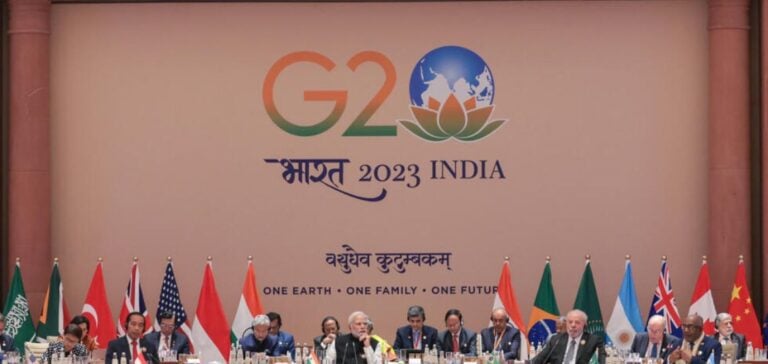Brazilian President Luiz Inácio Lula da Silva told the G20 summit on Saturday that the world was facing an “unprecedented climate emergency”, citing flooding in his country as an example.
Global Climate Emergency: Lula Alerts G20 to Growing Threat of Floods and Fires
“The lack of commitment to the environment is leading to an unprecedented climate emergency,” said Mr. Lula at the start of the two-day meeting in New Delhi.
“Droughts, floods, storms and fires are becoming more and more frequent, jeopardizing food and energy security,” added Lula, whose country will host the COP30 climate summit in 2025.
G20 leaders meet in New Delhi in what is likely to be the hottest year on record, but hopes are slim that the divided group will agree on ambitious actions to tackle the climate crisis.
G20: Three Crucial Questions to Address the Global Climate Emergency in New Delhi
Three key issues are on the table in New Delhi: tripling the world’s renewable energy capacity, gradually reducing the use of fossil fuels such as coal, and financing the green transition in developing countries.
In July, however, the G20 energy ministers failed to provide a roadmap for reducing emissions, or even to mention coal in their final declaration, despite it being a major contributor to global warming.
“The communiqués that have been issued are woefully inadequate,” Simon Stiell of the United Nations Framework Convention on Climate Change (UNFCCC) told AFP this week.






















